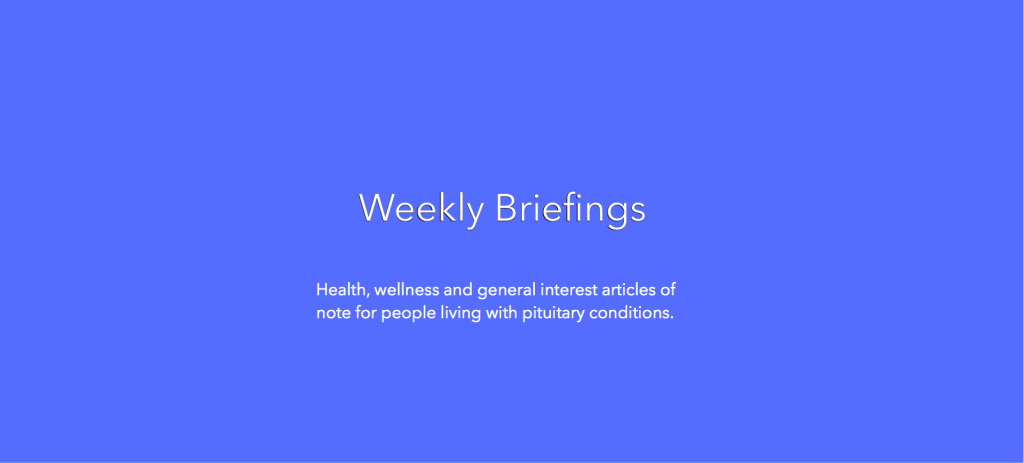This week’s weekly briefing brings health, wellness and general interest articles of note for people living with pituitary conditions.
From Modern Healthcare a fascinating story about researchers in New York using 3-D printers to create the next breakthroughs in medicine. “Todd Goldstein is only a 29-year-old Ph.D. candidate, but he is working on the front lines of medical research, using 3-D printers to produce bionic hands, implants made of synthetic bone, living organs and a range of other creations”. …read more here
What you eat can influence your sleep. From the editors of Neuroscience News a story on a new study that finds that eating less fiber, more saturated fat and more sugar is associated with lighter, less restorative, and more disrupted sleep. The study results are published in the January issue of the Journal of Clinical Sleep Medicine. A key finding was that participants fell asleep faster after eating fixed meals provided by a nutritionist, which were lower in saturated fat and higher in protein than self-selected meals. ….read the article here
From PRI (Public Radio International) highly acclaimed show Science Friday, this article talks about new designer cells that might be able to stop Psoriasis and Arthritis symptoms before they start. Researchers have now devised a new approach: a tiny implant of designer cells that detect inflammatory compounds before a breakout of psoriasis and then pump out anti-inflammatory compounds in response, thereby treating the flare-up before it starts. According to the researcher this approach could work to treat other inflammatory diseases like arthritis. …click here to read the article and listen to the whole interview
Touch endocrinology recently published an interesting article on Lifestyle Medicine as an emerging new discipline to promote healthy lifestyle behaviors. According to the article’s authors, “The new discipline of lifestyle medicine has recently emerged as a systematized approach for the management of chronic disease. The practice of lifestyle medicine requires skills and competency in addressing multiple health risk behaviors and improving self-management. This article focuses on the effects of a healthful lifestyle on chronic disease and defining lifestyle medicine as a unique discipline.” Here’s a link to the complete article.
© 2016, Pituitary World News. All rights reserved.
